Anaerobic digestion and green energy services provider, Eco Verde Energy (EVE), has become one of the first in the industry to achieve three International Organization for Standardisation (ISO) certifications.
EVE’s certifications include ISO 9001 for quality management systems meeting customer and regulatory expectations, ISO 14001 for environmental management enhancing performance and ISO 45001 for occupational health and safety systems protecting against work-related injuries and illnesses.
Will Rogers, EVE’s health, safety, environment and quality director, explains the achievement marks a continued commitment to operational excellence.
“We’re fortunate to have built our management system from the ground up, meaning it’s deliberately designed to meet the criteria set out in the international standards,” he says.
“Internally, we know our quality, environmental and occupational health and safety standards are high, but having third-party validation is a huge confidence boost.
“It gives assurance to our team, suppliers and customers and will be a huge asset to EVE as we continue to grow,” he adds.
Mr Rogers is keen to capitalise on the requirements set out by the ISO standards to strive for continual improvement.
“As part of the certification process, we’ll now have yearly surveillance audits which will measure our progress against planned objectives, ensuring we meet targets for customer expectations, environmental, legal, and other health and safety obligations,” he says.
The AD sector has been subject to increased scrutiny in recent years as it develops from small scale on-farm waste solutions to wide scale commercial operations.
This heightened focus on health, safety and efficiency is a positive development, says Mr Rogers.
“Last year, three EVE-managed sites were positively reviewed by the Health and Safety Executive as part of an industry information-gathering exercise on AD. This is a marked change in approach and demonstrates the importance of ensuring legal requirements and industry standards are consistently maintained when it comes to health and safety.
“Anaerobic digestion has an essential role to play for a more sustainable Britain, and we’re committed to demonstrating a strong safety record in line with our growth,” he adds.
Mr Rogers has a few words of advice for other operators considering applying for certifications.
“Make sure your management systems are designed to be reflective of the standard requirements, not the other way around.
“It doesn’t need to be complex; simplicity is key to ensuring effectiveness in the implementation process. All the standards are aligned and lend themselves to integration when it comes to shared requirements,” he says.
“The management system we’ve developed is not an off-the-shelf package but by adopting an integrated management system approach that’s inclusive of the standards, and setting clear objectives, we’ve got a winning formula.”




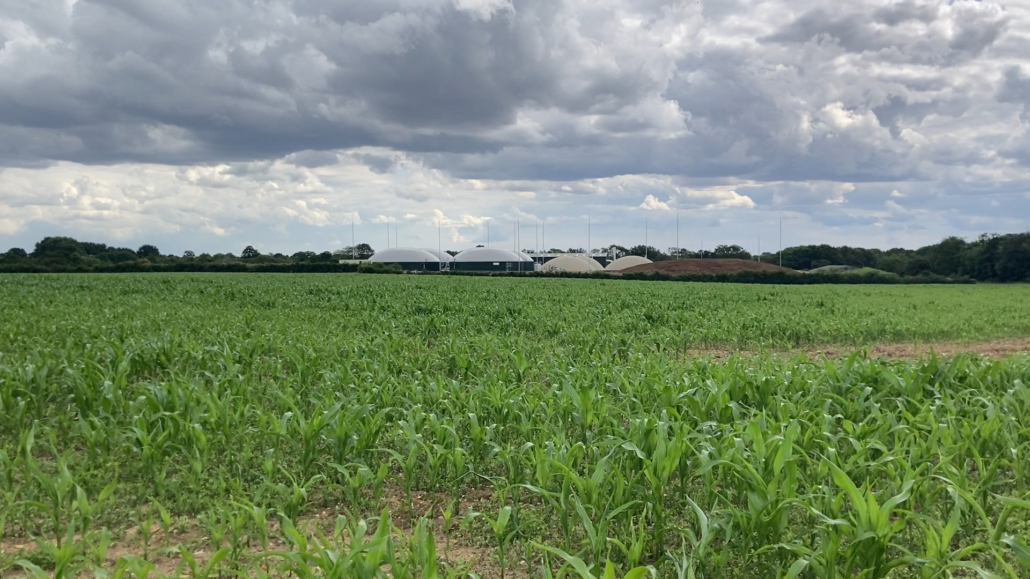
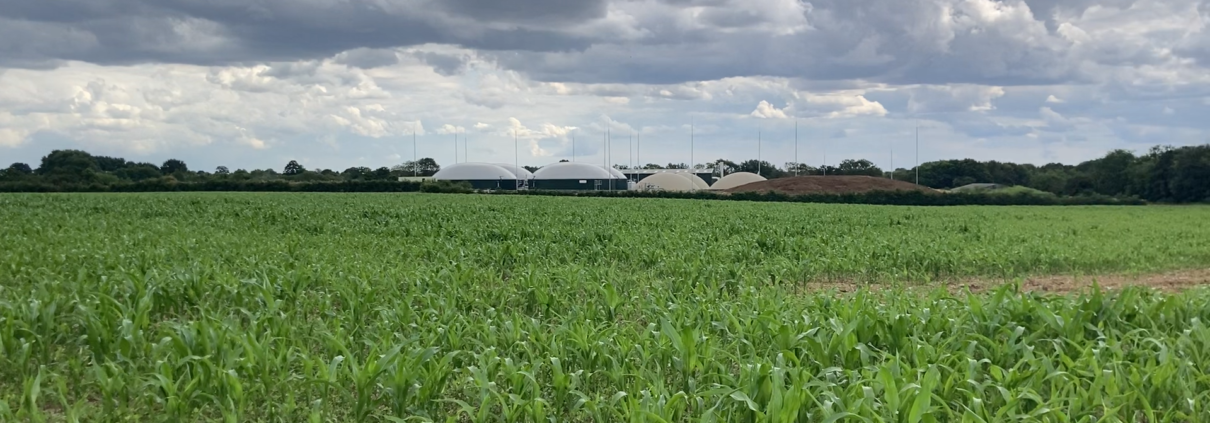

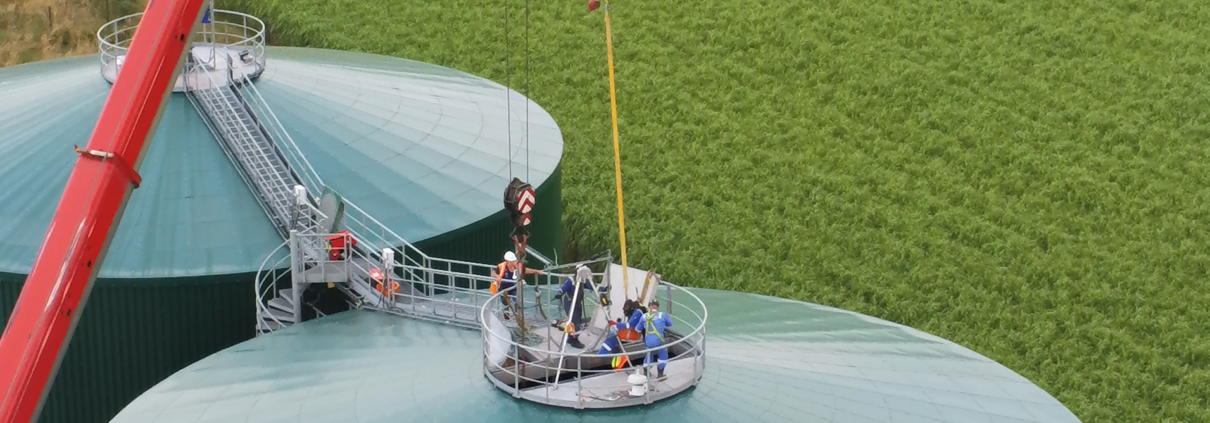
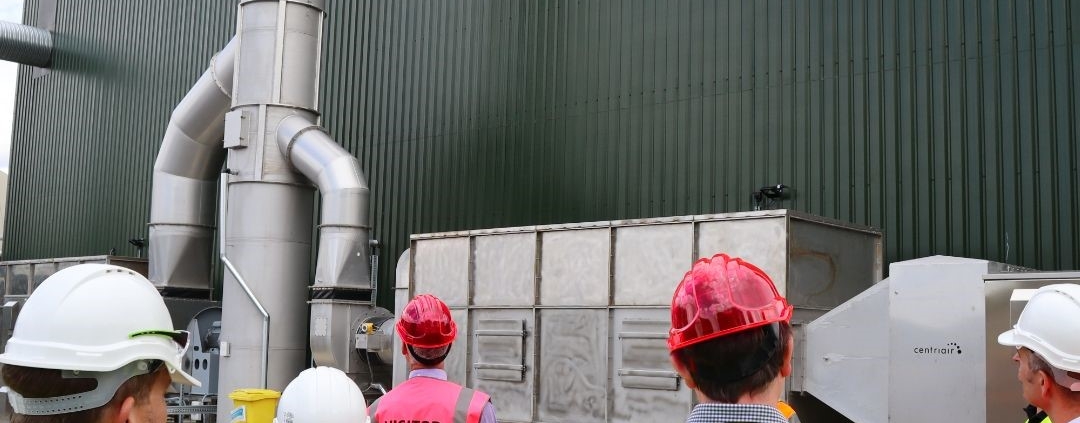
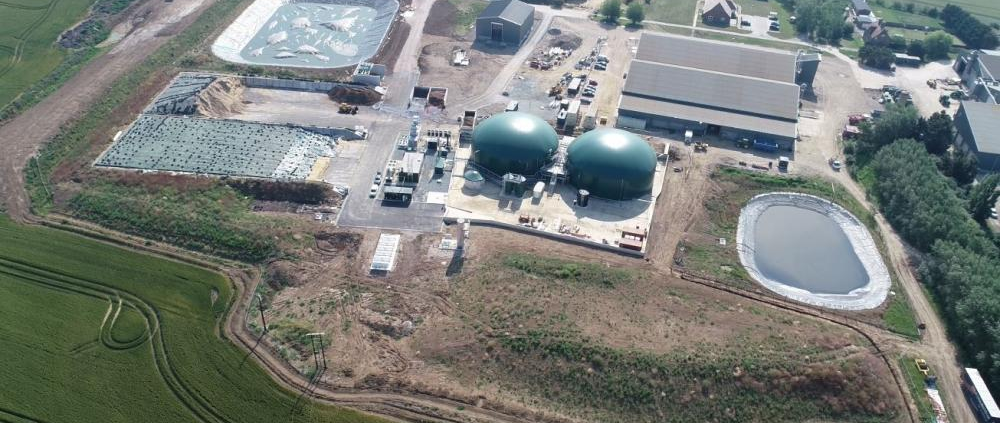



Waste From Norfolk Businesses Powers Homes
An upgrade from producing electricity to gas at a local anaerobic digestion facility has transformed a Norfolk town into one of the UK’s first green communities.
The picturesque town of Attleborough in Norfolk has found a new claim to fame.
An upgrade to an existing anaerobic digestion (AD) plant on a former turkey rearing site means the town is now one of the UK’s first green communities.
The plant receives collections of waste produce from the local area – ranging from food waste from local businesses, to waste from abattoirs and local factories. Often preventing it from going to landfill. The waste is used to produce biomethane which is injected into the local gas grid supplying the town.
Chris Waters, Operations Director (North) of the AD plant’s operator, Eco Verde Energy, says although the new waste plant was constructed on the site of an existing anaerobic digestion facility, there were still some initial hesitations from the local community.
“The planning process was fairly simple; at first there were a few concerns from the residents that lived close to the plant, but once they understood the contained nature of the process of anaerobic digestion and the environmental benefits it brought, the local community were incredibly supportive,” he explains.
“There is a common misconception that AD plants are odorous, however all waste emissions are fully controlled. It is a highly regulated process and when it comes to odour control and biosecurity, we fully comply with extremely tight regulations that are routinely monitored by both the Environment Agency and the Animal and Plant Health Agency.”
Local support
Like most local residents, Elliot Ellis from the Attleborough Christmas Lights Committee, initially had reservations about a power plant being built so close to home, however after learning more, he has embraced Attleborough’s new green credentials.
He says: “When I first heard about the AD plant, I was worried about the potential environmental impact, especially since it’s about three miles from my home but now it’s in operation, the town has realised that there isn’t much impact on us because there’s no smoke or smell.
“Even in my lifetime, I’m seeing the effect of global warming and knowing that Attleborough’s food waste powers the town is a small but important way to reduce our impact on the environment.
“It’s amazing that we’re one of the UK’s first green communities – it really gets our name on the map and I’m so proud.”
Links between the community and the plant have been strengthened further by EVE’s sponsorship of the town’s annual Christmas lights display. Mr Ellis explains that partnering with a renewable energy provider is an important show of support, reflecting the local enthusiasm for clean energy.
“It’s an honour, it’s a good advertisement for renewable energy for the town.
“Christmas lights have a lot to do with energy use, so it’s good to show that we’re going green,” he adds.
Site upgrade
The upgrade to the site means there are now two AD plants on the same premises, which enables a wider range of feedstocks to be utilised.
The smaller AD plant uses an agricultural feedstock with a mix of rye, maize and sugar beet pulp to produce electricity to feed the digestors.
The second, newer plant is fed with a mixture of waste products from local businesses including food factories, takeaways and restaurants.
The upgrade to the site is timely as changes to the Environment Act mean local councils will need to collect food waste separately by 2025 to reduce emissions and increase the percentage of household rubbish being recycled.
According to the Waste and Resources Action Programme (WRAP), the UK currently wastes around 9.5 million tonnes of food every year, with 6.6 million tonnes being thrown out by households.
This means that around 16% of all food purchased is wasted – enough to fill Wembley Stadium eight times over[1].
Environmental impact
Mr Waters is confident that AD can provide a solution to reducing greenhouse gas emissions and the amount of food going into landfill.
He says: “AD unfortunately doesn’t get the credit or the publicity that the other green energy generators, such as solar and wind generation receive, but I passionately believe it deals with the waste and landfill problem in a way that no other renewable technology out there does.
“We need to invest in building new AD installations across the country to process the extra food waste and harness green energy from waste.”
Mr Waters adds: “The site at Attleborough is designed to produce enough biomethane to supply all of the town’s 4,000 homes during the summer months and 50% of them during the winter months.
“I strongly believe that this is a model that should be rolled out in every town.”
Originally featured in BioEnergy Insight’s November/December issue.
Attleborough AD Plant: Key facts